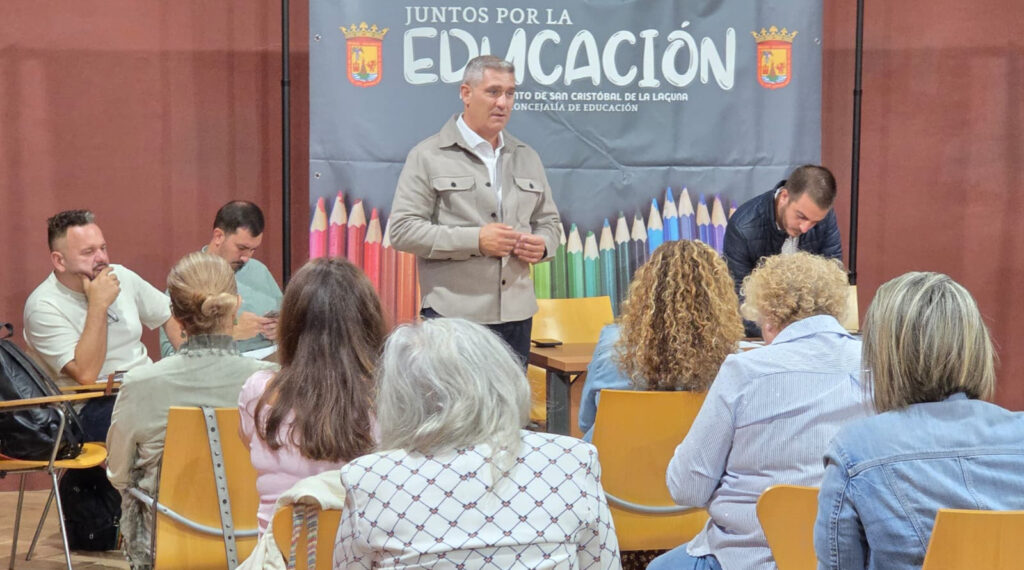
La Laguna advocates a “broad interpretation of accessibility, addressing both physical and mental disabilities,” asserts Ángel Chinea
This week, the Council of La Laguna participated in Córdoba at the First National Meeting of cities awarded the ‘Access City Award’. This accolade is granted by the European Commission in collaboration with the European Disability Forum, recognising cities that have demonstrated exemplary commitment to universal accessibility as a catalyst for urban transformation towards fairer, safer, and more accessible environments. La Laguna received this award in 2024.
Representing La Laguna, the board included the Councillor for Works, Infrastructure and Accessibility, Ángel Chinea; the area technician, Patricia Bravo de Laguna, responsible for the physical accessibility department; and Pilar Herrero, the cognitive accessibility technician from the Social Welfare Council led by María Cruz.
The Council has championed “a broad interpretation of accessibility, which should address not only physical disabilities in urban environments but also mental and cognitive disabilities,” according to Ángel Chinea. In this regard, the transversal nature of accessibility policies has been highlighted, alongside the necessity of maintaining close working relationships with organisations linked to disability.
La Laguna’s presentation was particularly appreciated by the other participating cities, especially for the role of the disability advocate and the presence of the Punto Naranja as a mobile inclusion space. Additionally, it was noted as innovative that training and awareness campaigns on how to interact with and assist people with disabilities are implemented not only among municipal staff but also among public officials themselves.
“We are very aware that we still have significant work ahead to enhance physical accessibility, especially regarding public spaces, lowering pavements, removing architectural barriers, and continuing efforts to improve public services while engaging private entities to implement cognitive accessibility actions. This will be pursued across all areas of the Council, not just Works and Social Welfare, but also in Sports, the President’s Office, and Municipal Services,” asserts Ángel Chinea.
The purpose of the meeting was to encourage the exchange of experiences and best practices regarding local accessibility, aiming to strengthen institutional commitment to universal accessibility, promote mutual learning, and highlight the transformative role of municipal governments in creating inclusive and accessible environments for all.
Since the inception of the Access City Award in 2010, a total of 18 Spanish cities have received various awards and special mentions, but only two have achieved the highest honour: Ávila in 2011 and La Laguna in 2024. Among the reasons cited by the European jury for recognising La Laguna were the efforts made to eliminate barriers and adapt infrastructures, public spaces, facilities, urban furniture, and services for all citizens without exception.
The event was structured around several working groups. The first, titled ‘How to Act? Defining Local Public Policies for Universal Accessibility’, gathered experiences from European Access City Award-winning cities in the areas of planning and the transversal nature of public policies; urban mobility, historic heritage, and ICTs; among other municipal services.
The second working group, titled ‘The Potential of the Local and the Drive Towards Universally Accessible Environments’, a key issue for the European Union, reviewed insights from experts in European and national governments, as well as from Fundación ONCE. Finally, the debate forum analysed the alliances between local powers and civil society concerning disability.
The meeting concluded with the reading of the Córdoba Declaration for Universally Accessible Cities (attached), highlighting the commitment of participating entities to accessibility as a transversal axis of their public policies, fostering the involvement of people with disabilities and their representatives in designing and constructing more inclusive urban environments across Spain.
















